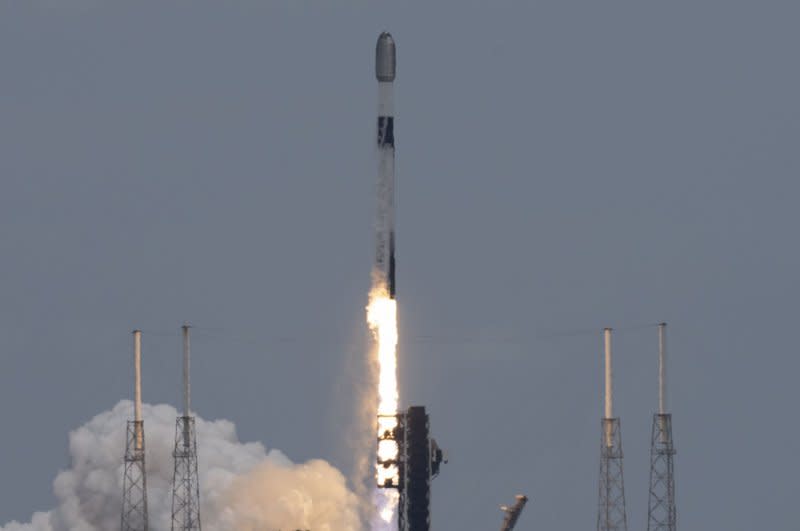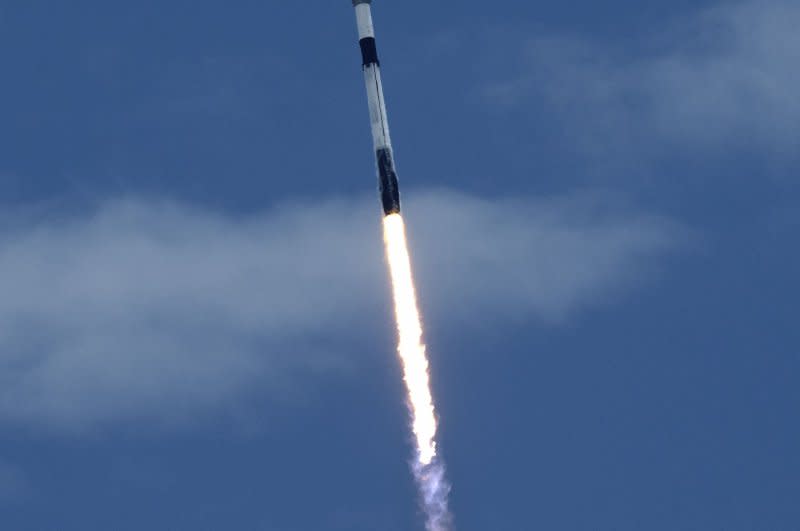SpaceX conducts two launches, deploying dozens of Starlink Internet satellites

June 23 (UPI) -- SpaceX launched a pair of Falcon 9 rockets carrying a combined 42 Starlink Internet satellites into low-Earth orbit.
The first rocket with its 22 orbitals launched from Cape Canaveral in Florida at 1:15 p.m. ET Sunday.
The reusable first-stage booster returned to the drone ship A Shortfall of Gravitas in the Atlantic Ocean about 8 minutes after launch. This was the 11th flight of the booster rocket and the 75th time this droneship has been used to recover a first stage booster.
Between weather and technical issues, SpaceX has been facing challenges in deploying this mission since June 14.
It was the 65th SpaceX mission for the year, and the company is on pace for 148 missions, eclipsing last year's total of 98.

This is SpaceX's 348th Falcon mission overall, and the company seeks to provide internet service to 3 million people when all of its satellites are deployed.
Nine Merlin engines up and running and liftoff of Falcon 9! pic.twitter.com/mEpxbmxfPG— SpaceX (@SpaceX) June 23, 2024
SpaceX launched its second rocket of the day at 8:47 p.m. PT from the Vandenberg Space Force Station in California.
Its 20-satellite payload included 13 satellites featuring Direct to Cell capabilities. SpaceX used its Of Course I Still Love You droneship to retrieve the first-stage booster rocket in the Pacific Ocean.
A Starlink satellite has a lifespan of approximately five years and SpaceX eventually hopes to launch as many as 42,000 satellites. It has been seeking approval to launch more.
SpaceX is scheduled to launch launch a geostationary satellite Monday from Cape Canaveral, weather permitting. This will be the latest in a series of geostationary satellite launches, which sit about 23,000 miles above the Earth and work with other geostationary units to cover the surface of the planet with signal through a process known as 'triangulation.' This launch has been delayed since April.


